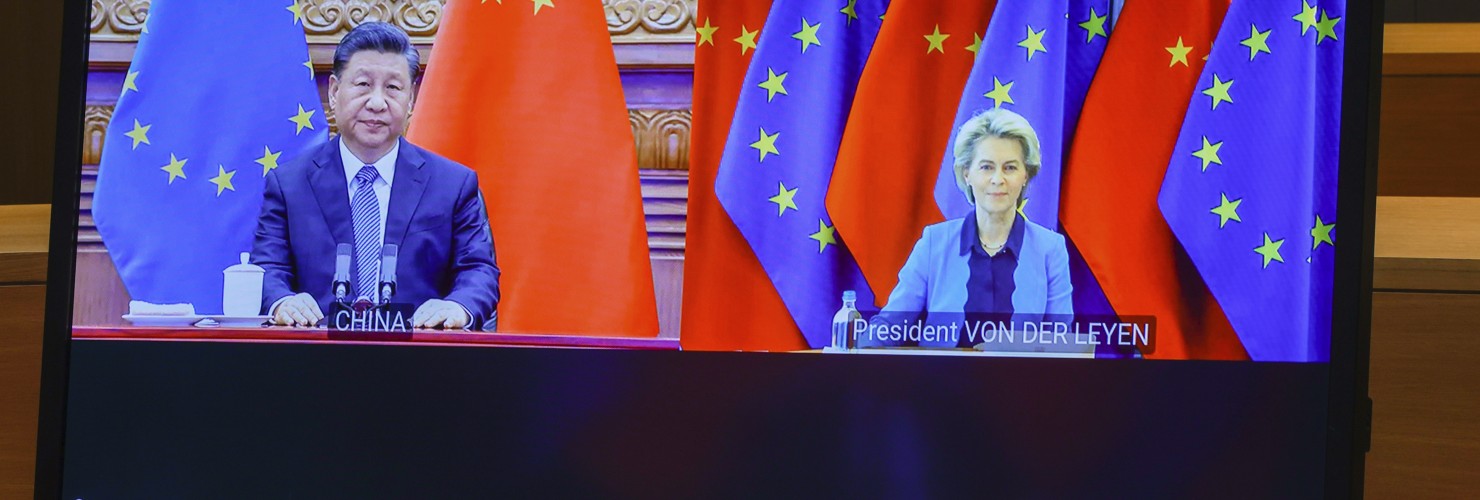
The European Commission’s 2019 Strategic Outlook described China as a partner, a competitor and a systemic rival. This description holds still today, but managing these different dimensions is proving increasingly difficult. China poses mounting challenges to core European values and interests.
A joint paper published today by the French Council of Economic Analysis (CAE), MERICS Director Mikko Huotari and Sébastian Jean, professor of economics at Conservatoire National des Arts et Métiers in Paris, calls for a re-assessment of the EU’s strategy vis-à-vis China. You can access and download their paper titled Bolstering Europe’s Economic Strategy vis-à-vis China here.
The paper explores China’s recent economic and policy choices that put the country increasingly at odds with those of the European Union. Economic coercion in response to the opening of a Taiwan office in Lithuania, tacit support for Russia in the war in Ukraine, sanctions against European stakeholders as a result of divergences over human rights violations in Xinjiang are just some cases in point. In addition, China’s approach to global integration and its economic policy priorities increasingly focus on limiting its dependence on foreign suppliers and shielding its vulnerabilities.
The authors recommend changes of the EU’s China strategy along three main axes:traditional trade policy concerns
human rights, climate policies and data regulation
economic security and sovereignty
The authors call for an integrated approach, supported by a stronger institutional capacity. In sum, European responses should not aim at cutting bilateral economic dependence with China, but rather at making the relationship more balanced and safer. You can find recommendations in this analysis how this can be achieved.
Summary of the main findings:China is increasingly focusing on self-reliance and securitization, which creates additional barriers and disadvantages for European companies in China, especially in sensitive sectors. It also results in a forceful localization pull for higher-value added production and innovation activities.
Competition in China is distorted by the lack of transparency and fairness in the way regulations are applied, and by persistent practices of forced technology transfers. Multifaceted government support of an unprecedented scale generates massive distortions.
Summary of the main recommendations:Reinforce cooperation between like-minded countries on subsidies in order to jointly engage China on this topic. Remain active but selective in the use of trade defense instruments.
Do not seek to complete CAI ratification until the political context improves significantly, so that not only sanctions are removed, but also both sides agree on a comprehensive agenda for cooperation.
Finalize the foreign subsidies regulation and focus on the efficient implementation of the toolbox of autonomous instruments.
In using trade and investment policies to deal with human rights violations, focus on coordination with like-minded countries, the proportionality of regulations, and the adjustability of actions.
In moving toward CBAM implementation, engage with China about the way to account for different climate policies in a plurilateral framework. In parallel, devote special efforts to build strong positions in research and industry in green technologies.
Use reciprocity conditions as a leverage to support EU companies in their efforts to maintain transferability of industrial and other data across Chinese borders, conditional to security and privacy.
Strengthen the EU’s capacity for monitoring, research and intelligence on vulnerabilities, resilience and competitiveness challenges associated with the EU’s economic and innovation entanglement with China.
Develop an integrated approach to economic security and sovereignty challenges vis-à-vis China, based upon cost-efficient responses.
Improve the institutional capacity to implement Europe’s economic strategy vis-à-vis China, for instance by creating a position of Executive Vice-President of the European Commission, in charge of external economic relations.
No comments:
Post a Comment